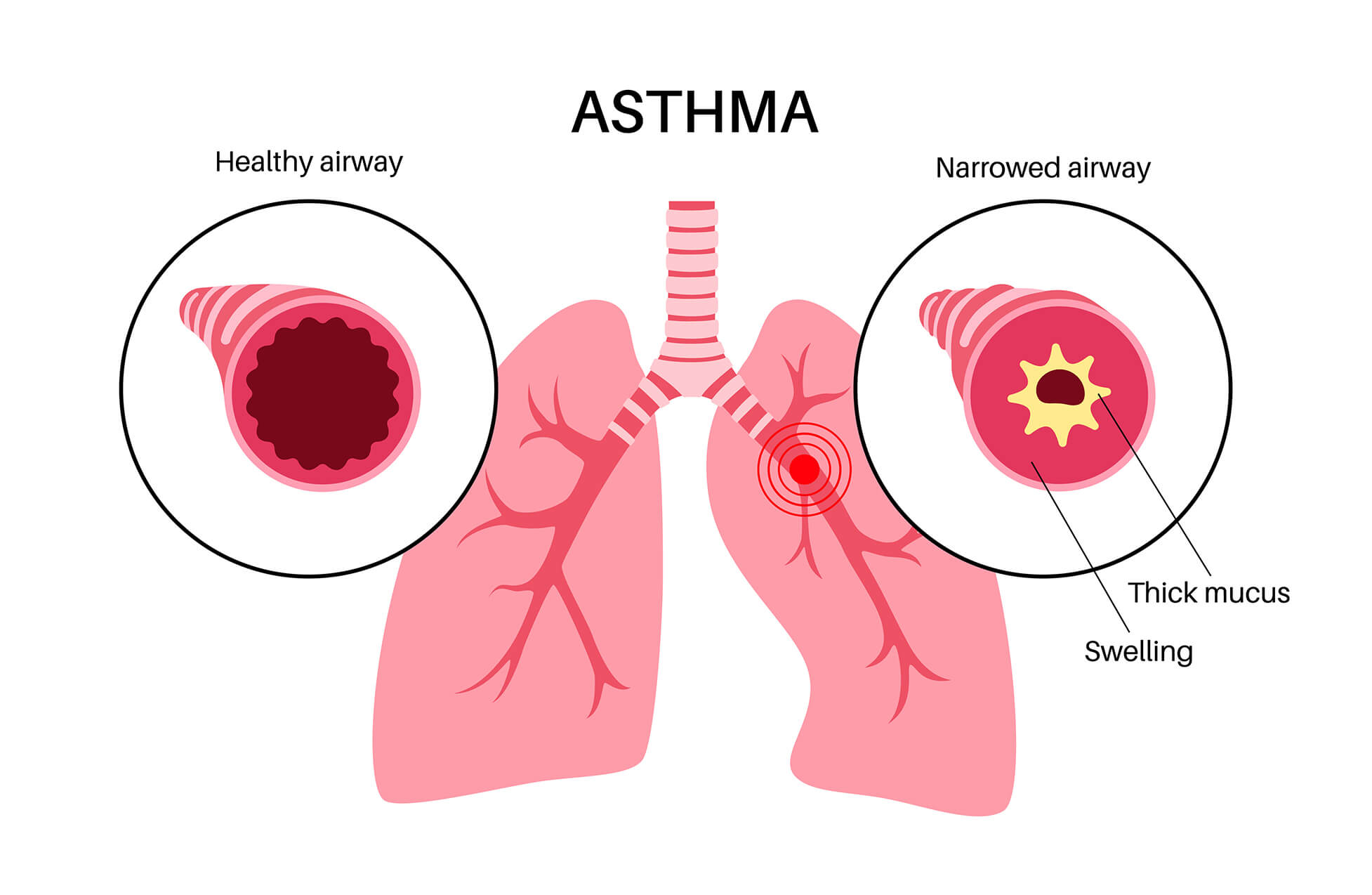ADVICE FOR PEOPLE WITH ASTHMA
Winter can be a challenging time of year for people with asthma. Cold air can irritate the airways and encourage the flare-up of an inflammatory reaction, which further leads to narrowing of the lower airways and increased production of secretions. The consequence of such a reaction is the symptoms of difficulty breathing, coughing, "whistling" in the chest or tightness with the feeling that the lungs are "tight". This reaction can also be triggered in the upper respiratory tract (nose and sinuses), causing symptoms of nasal congestion and post-nasal secretions, which affects more frequent inhalation of air and breathing through the mouth, which is by no means recommended. However, the most common reason for exacerbation of asthma symptoms during the winter months is respiratory infections caused by viruses (colds, flu, etc.). In such cases, symptomatic treatment, primarily of the upper respiratory tract, with analgesics, decongestants, antioxidants, along with plenty of hydration, i.e. taking warm drinks and water, is recommended. Vaccination against seasonal flu in the autumn period is definitely recommended, especially for the elderly, in order to avoid severe clinical deterioration. Symptoms of a viral infection are usually short-lived, but in people with asthma, they can cause a prolonged immune response and a smoldering reaction in the airways (post viral syndrome). If the symptoms do not subside even after seven days, consult a doctor who will adjust the treatment plan. It is important that people with asthma recognize the signs of worsening in time in order to take appropriate measures to improve the control of this chronic inflammatory disease.
Given that during the winter months we spend more time indoors, it is recommended to increase the hygiene of the work and environment, frequent washing and disinfection of hands and rooms, fight against allergens such as house dust, dust mites and molds, control the humidity of the air, which is mostly dry and irritating during the heating season, regular ventilation of rooms where we stay for a long time, etc.
There is no reason why people with asthma should not look forward to winter spells, but it is necessary to prepare in time and follow the recommendations of your pulmonologist.
Asthma is a chronic disease that over 300 million people in the world today live in different geographical and climatic areas, each with its own characteristics. However, along with modern diagnostics, the therapeutic approach focused on the needs of each individual patient is also changing, and through long-term awareness raising and spreading of knowledge about this disease, the patients themselves have contributed to its better control.
In recent decades, new challenges in the treatment of asthma have arisen due to climate change and global warming of the earth's atmosphere, i.e. the so-called greenhouse effect caused by the increased production of anthropogenic gases such as carbon dioxide, methane, nitrogen oxide, ozone, etc. The allergenicity of pollen increases in chemical reactions with ozone and other harmful emissions, especially in urban areas where air pollution is high. Such effects can also be seen during the winter period, but they are more pronounced in the transitional seasons and at the beginning of the heating season.
Let's look forward to spring and be ready.


